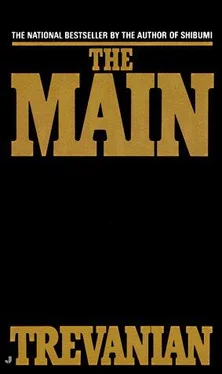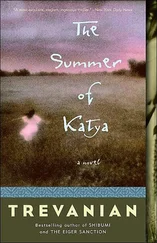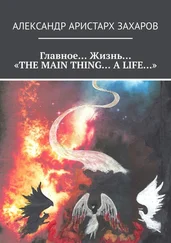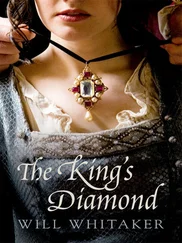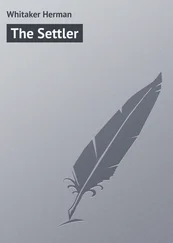LaPointe nods. Prostitution is the least violent crime on the Main and, if it doesn’t involve rolling the mark and isn’t controlled by pimps protected by the heavies from the Italian Main, LaPointe habitually overlooks it. He feels particularly sorry for the whores who don’t have the money to work out of apartments or hotels—the young ones fresh in from the country, broke and cold, or the old ones who can only score drunks and who have to take it standing in a back alley, their skirts up, their asses pushed up against a cold brick wall. He feels pity for them, but disgust, too. Other crimes make him feel anger, fear, rage, helplessness; but this kind of scratch prostitution produces in him as much disgust as pity. Maybe that’s what Moishe means by a sin against love.
They stop at the corner and shake hands. “See you Monday,” Moishe says, turning and walking down his street.
LaPointe thrusts his hands deep into the pockets of his baggy overcoat and walks down the Main.
As he passes a deep-set doorway, a slight motion catches the tail of his eye. His hand closes down on the butt of his revolver.
“Step out here.”
At first there is no movement. Then a grinning, ferret-thin face appears around the corner. “Just keeping out of the wind, Lieutenant.”
LaPointe relaxes. “Got no kip tonight?” He speaks English because Dirtyshirt Red has no French.
“I’m okay, Lieutenant,” the bomme says, reaching under his collar to adjust the thickness of newspaper stuffed beneath his shirt to keep out the cold. “I sleep here lots of times. Nobody cares. I don’t bother nobody. I won’t get too cold.” Dirtyshirt Red grins slyly and shows LaPointe a bottle wrapped in a brown paper bag. “It’s half full.”
“What are you going to do when the snow comes, Red? You got something lined up?” There are seven bommes whom LaPointe recognizes as living on the Main and having rights based on long residence. He takes care of them on their level, just as he takes care of the prostitutes on theirs, and the shopkeepers on theirs. There used to be eight recognized tramps, but old Jacob died last year. He was found frozen to death between stacks of granite slabs behind the monument-maker’s shop. He drank too much and crawled in to sleep it off. It snowed heavily that night.
“No, I don’t have anything lined up, Lieutenant. But I ain’t worried. Something will come along. That’s one thing you can say: I’ve always been lucky.”
LaPointe nods and walks on. He doesn’t like Dirtyshirt Red, a sneak thief, bully, and liar. But the bomme has been on the Main for many years, and he has his rights.
It is past midnight, and the street is beginning to dim and grow quiet. Thursday is a slow night on the Main. LaPointe decides to leave St. Laurent and check out the tributary streets to the east. He passes through the darkened Carré St. Louis, with its forgotten statue of the dying Cremazie:
Pour Mon Drapeau
Je Viens Ici Mourir
The fountain no longer works, and on the side of the empty basin someone has written in black spray paint: LOVE. Next to that there is a peace sign, dried rivulets of paint dripping down from it, like the blood that used to drip from the swastikas in anti-Nazi posters. And under the peace sign there is: FUCK YO …then the spray can ran out.
That would be young Americans who have come to Montreal to avoid the Vietnam draft. They have a special flair for spray paint. LaPointe is not fond of the young, bearded boys from the States who hang around dimly lit coffee bars filled with eerie music and odd-smelling incense, brandishing their battered guitars, singing in nasal groans, cadging drinks from sympathetic college girls, or practicing their more-tragic-than-thou stares into space. Most of them live off federal dole, cutting into funds already inadequate for the needs of the poor of east Montreal.
But they will pass, and they are no real trouble, aside from the nuisance of marijuana and other kiddie shit. They bring yet another alien accent to the Main, with their hard “r’s” and their odd pronunciation of “out” and “house” and “about,” but LaPointe assumes he will get used to them, as he got used to all the others.
In general, his feelings toward Americans are benevolent, for no better reason than that when he went on his brief honeymoon—now thirty-one years ago—he found the thoughtfulness of road signs in French as far south as Lake George Village; while in his own country, the French signs stopped abruptly at the Ontario border.
At least these young draft avoiders are quiet. Not like the American businessmen from the convention quarters of the Expo site on Ile Ste. Hélène. Those types are a real nuisance. They get drunk in their chrome-and-leatherette hotel bars, and small bands of them come up to the Main, seeking a little action, mistaking poverty for vice. They flash too much money and bargain childishly with the whores. As often as not they get rolled or punched up. Then LaPointe has to respond to complaints lodged with the Quartier Général, has to listen to diatribes about tourism and its value to Montreal’s economy.
Always turning toward the darkest streets, LaPointe picks his way through the tangle of back lanes until he comes out again onto the Main, quiet now and nearly closed up.
As he passes the narrow alley that runs beside the Banque de Nova Scotia, he feels a slight rush of adrenalin in his stomach. Even after all these years, his nerves, quite independent of his conscious mind, take a systemic jolt whenever he passes that alley. It’s become automatic, and he is used to it. It was in that alley that he got hit; it was there that he sat awaiting death, expecting it. And once a man loses his sense of immortality, he never regains it.
He had put the street to bed, like tonight; and he was on his way home. There was a tinkle of glass down the alley. A figure dropped down to the brick pavement from a window at the back of the bank. Three of them, running toward LaPointe. He fired into the air and called to them to stop. Two of them fired at once, two flashes of light, but he had no memory of the sound because a slug took him square in the chest and slammed him against the metal door of a garage. He slid down the door, sitting on one twisted foot, the other leg straight out in front of him. They fired again, and he heard the slug slap into the meat of his thigh. Holding his gun in both hands, he returned fire. One went down. Dead, he later learned. The other two ran.
After the shots, there was no sound in the alley, save for the sigh of wind around the corner of the garage. He sat there, slipping in and out of consciousness, staring at his own foot, and thinking how silly he would look when they found him, one foot under his butt, the other straight out in front of him. A long time passed. A minute, perhaps. A very long time. He opened his eyes and saw a yellow cat crossing before him. Its tail was kinked from an ancient break. It stopped and looked at him, one forepaw poised, not touching the ground. Its eyes were wary, but frigid. It tested the ground with its paw. Then it walked on, indifferent.
The wound in his chest felt cold. He put his hands over it to keep the wind out. His last conscious thought was a stupid, drunken one. Must keep the wind out. Mustn’t catch cold. Catch cold at this time of year, and you don’t get rid of it until spring.
He knew he was going to die. He was absolutely sure. The fact was more sad than terrifying.
He was four and a half weeks in the hospital. The leg wound was superficial, but the slug in his chest had grazed the aorta. The doctors said things about his being lucky to have the constitution of an habitant peasant. After leaving the hospital he had a period of recuperation, lounging around his apartment until he couldn’t stand it any longer. Even though he wasn’t technically back on active service yet, he began making rounds of the Main at night, putting the street to bed. Once a beat cop…
Читать дальше
